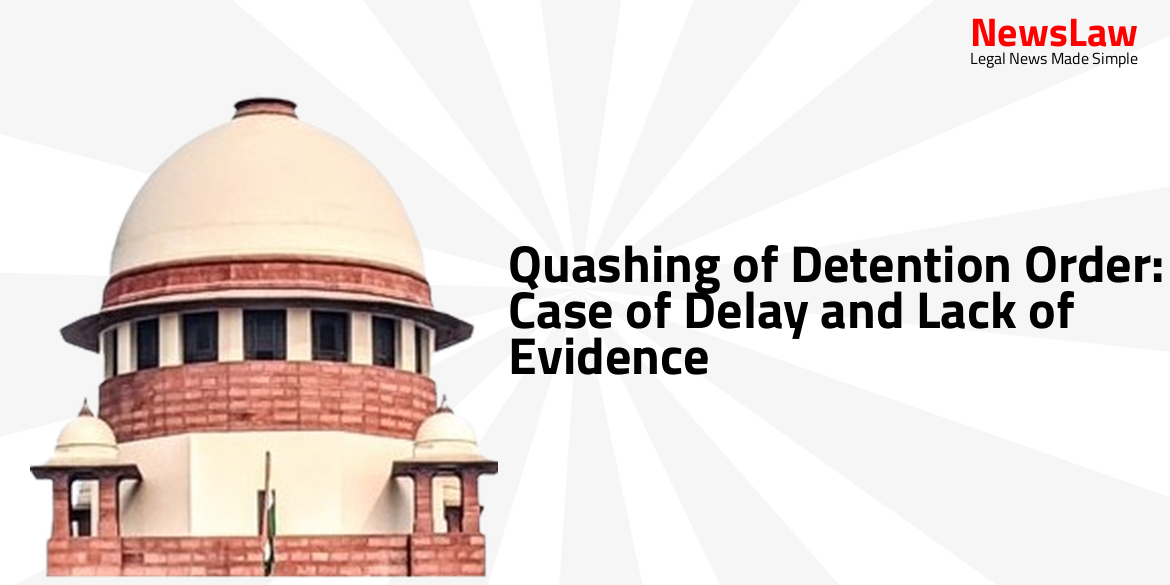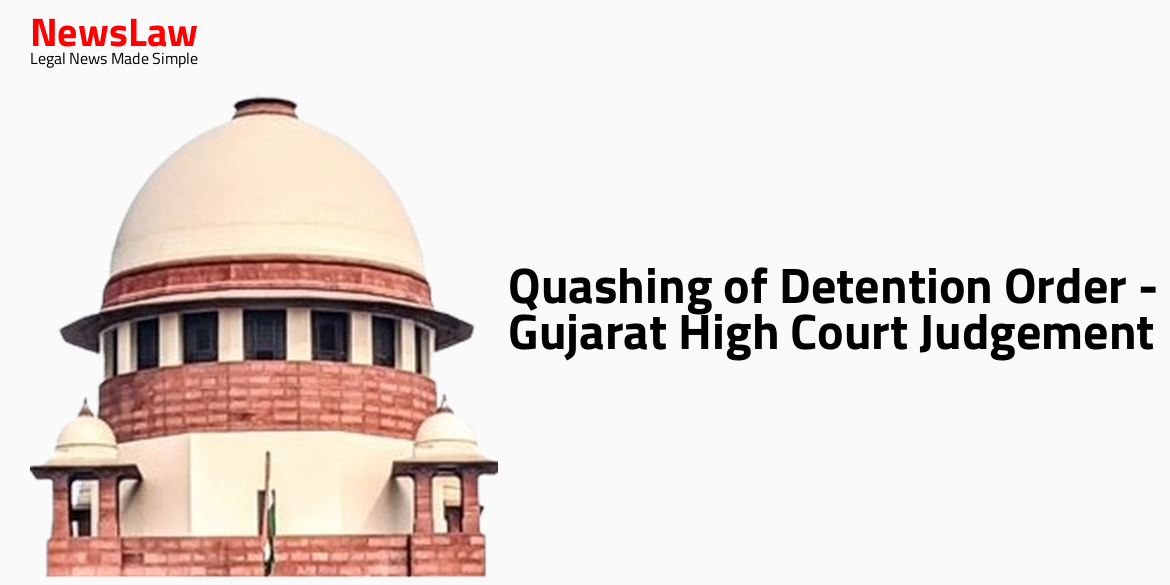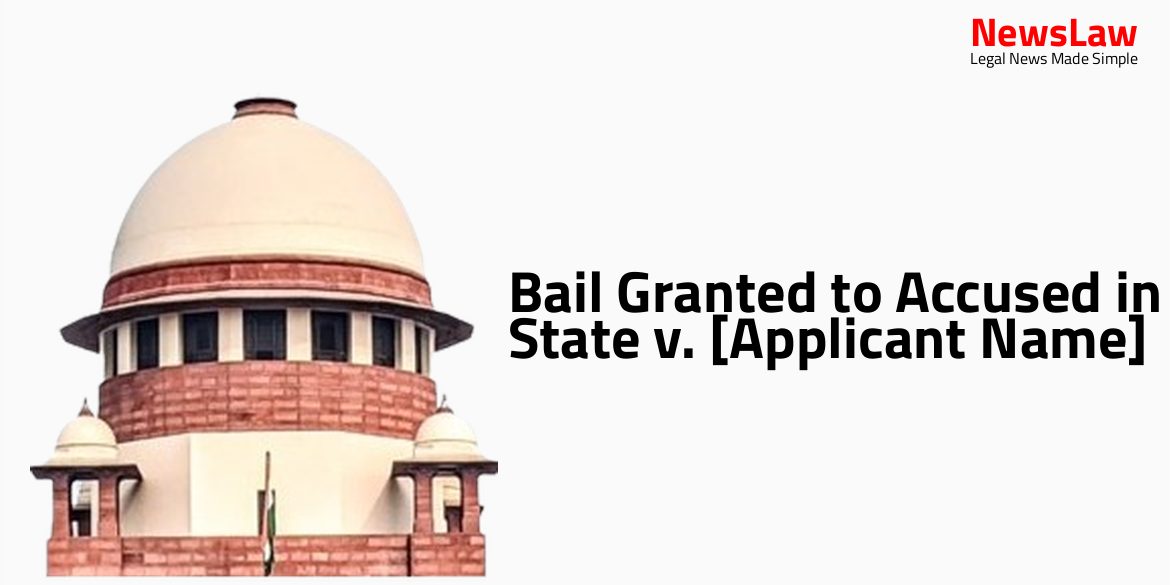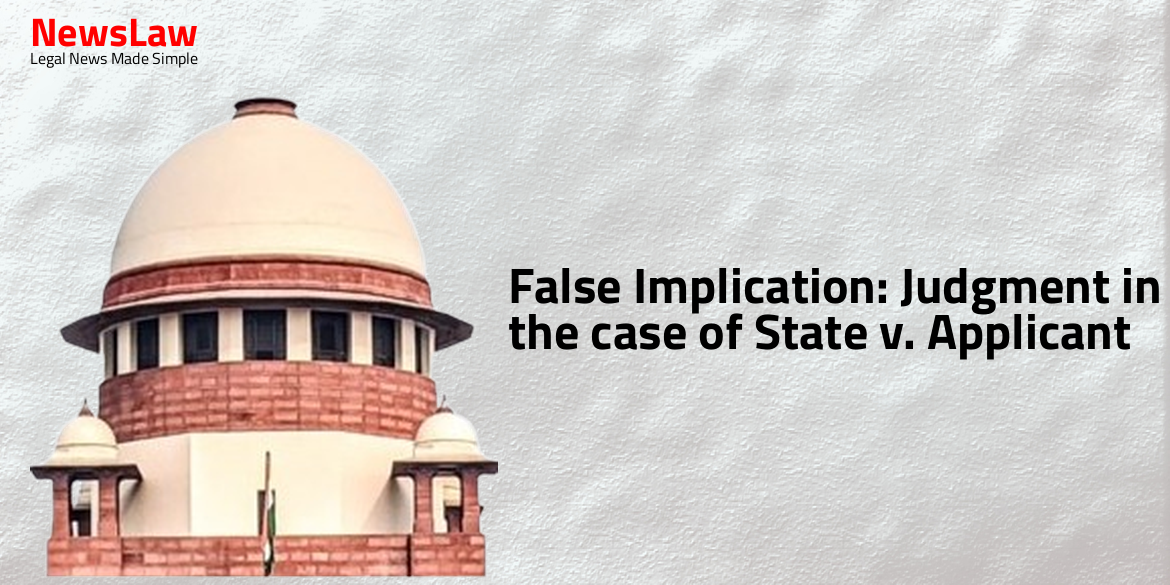In a recent judgment by the Gujarat High Court, the quashing of a detention order due to delays and lack of evidence has raised crucial questions about the validity of preventive detention measures. The case involved a dispute between an individual and the state authorities regarding the legality of the detention order. Dive into the details of this landmark ruling to understand the impact on legal proceedings and individual rights.
Facts
- No relevant material connecting detenue’s alleged anti-social activity with breach of public order
- Only witness statements, FIR, and Panchnama on record
- Lack of cogent evidence to support the detention
Issue
- The primary issue in this case is whether the actions of the original respondent were in violation of Article 14 of the Constitution of India.
- The contention raised by the petitioner is that the respondent’s actions were discriminatory and arbitrary, thus violating their right to equality under Article 14.
- Another aspect of the issue is whether the impugned order passed by the respondent is ultra vires the provisions of the Constitution or any order made thereunder.
- The interpretation of Article 14 and its application to the facts of this case is a significant aspect of the legal question at hand.
- The determination of whether there is a substantial question of law in relation to the interpretation of the Constitution or any order made thereunder is crucial for deciding the course of this case.
Arguments
- The petitioner argues that the detenue’s activities regarding the criminal cases did not significantly disturb the societal order or pose a threat to normal life.
- There is a delay of over one and a half months in issuing the detention order after the petitioner’s release on bail for the second offense on 14.09.2023.
- The Learned AGP for the respondent State supported the detention order passed by the authority.
- Sufficient material and evidence were found during the investigation.
- The material supplied to the detenue indicates a habit of indulging in activities defined under section 2(b) of the Act.
- The detaining authority has rightly passed the detention order considering the facts of the case.
- The subjective satisfaction arrived at by the detaining authority is deemed not legal, valid, or in accordance with the law.
Analysis
- The detaining authority did not consider the fact that the appellant had been released on regular bail in both cases before passing the detention order.
- The detention order did not reflect that cancellation of bail was considered as an alternative to prevent the activities of the petitioner.
- There was a delay of almost five months between the proposal to detain the appellant and the actual passing of the detention order.
- There was no explanation provided for the significant delay in passing the detention order.
- The detaining authority’s conclusion about the petitioner’s activities being detrimental to public health lacked supporting contemporaneous material.
- The allegations against the detenue were not sufficient to categorize them as a threat to public order under the Act.
- Without concrete evidence showing the person as a threat to society and public order, the detention under the Act cannot be justified.
- The Apex Court in the case of Sushanta Kumar Banik Vs. State of Tripura observed that delay in passing the order of detention from the date of proposal can snap the ‘live and proximate link’ between prejudicial activities and the purpose of detention.
- Detaining authorities must act promptly to maintain the effectiveness of preventive detention measures.
- Unreasonable and unexplained delays in securing and detaining a person can invalidate the detention order.
- The underlying principle is the necessity of a ‘live and proximate link’ between the grounds of detention and the purpose of detention.
- In cases where delay occurs, subjective satisfaction of the detaining authority in passing the detention order is called into question.
- The High Court did not address or provide findings on the significant delay in passing the detention order in the present case.
- Absence of material on record led to the detaining authority’s subjective satisfaction being considered as flawed
- The detaining authority’s conclusion is deemed invalid without supporting evidence
- Lack of FSL report further weakens the case against the detainee
Decision
- Direct service is permitted
- Simplicitor registration of FIR/s does not have a nexus with the breach of maintenance of public order
- No other relevant and cogent material exists for invoking power under section 3(2) of the Act
- Petition allowed, impugned order of detention quashed and set aside
- Detenue ordered to be set at liberty forthwith
Case Title: SURESHKUMAR CHHOGARAMJI MEENA Vs. STATE OF GUJARAT
Case Number: R/SCA/20144/2023



